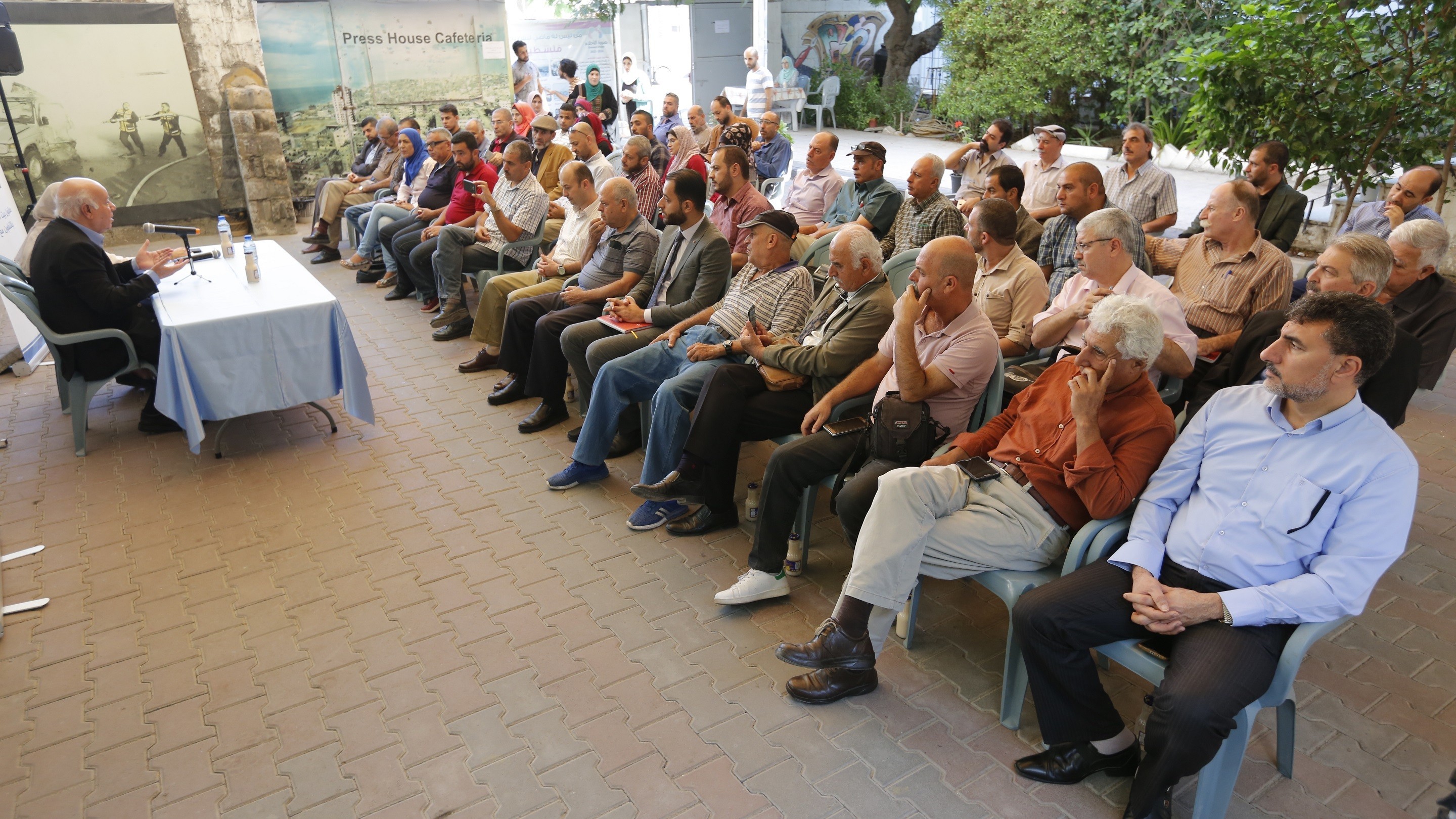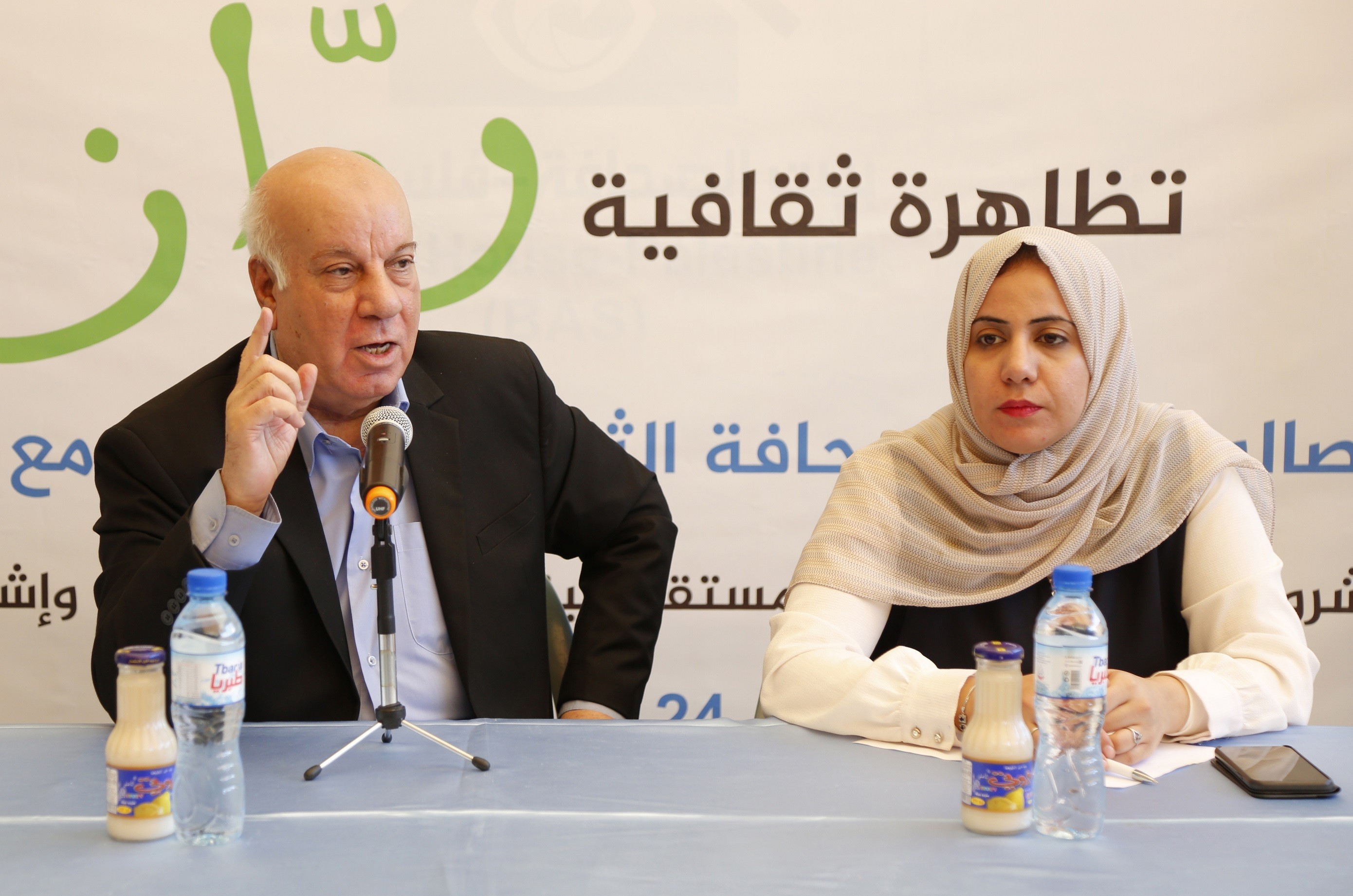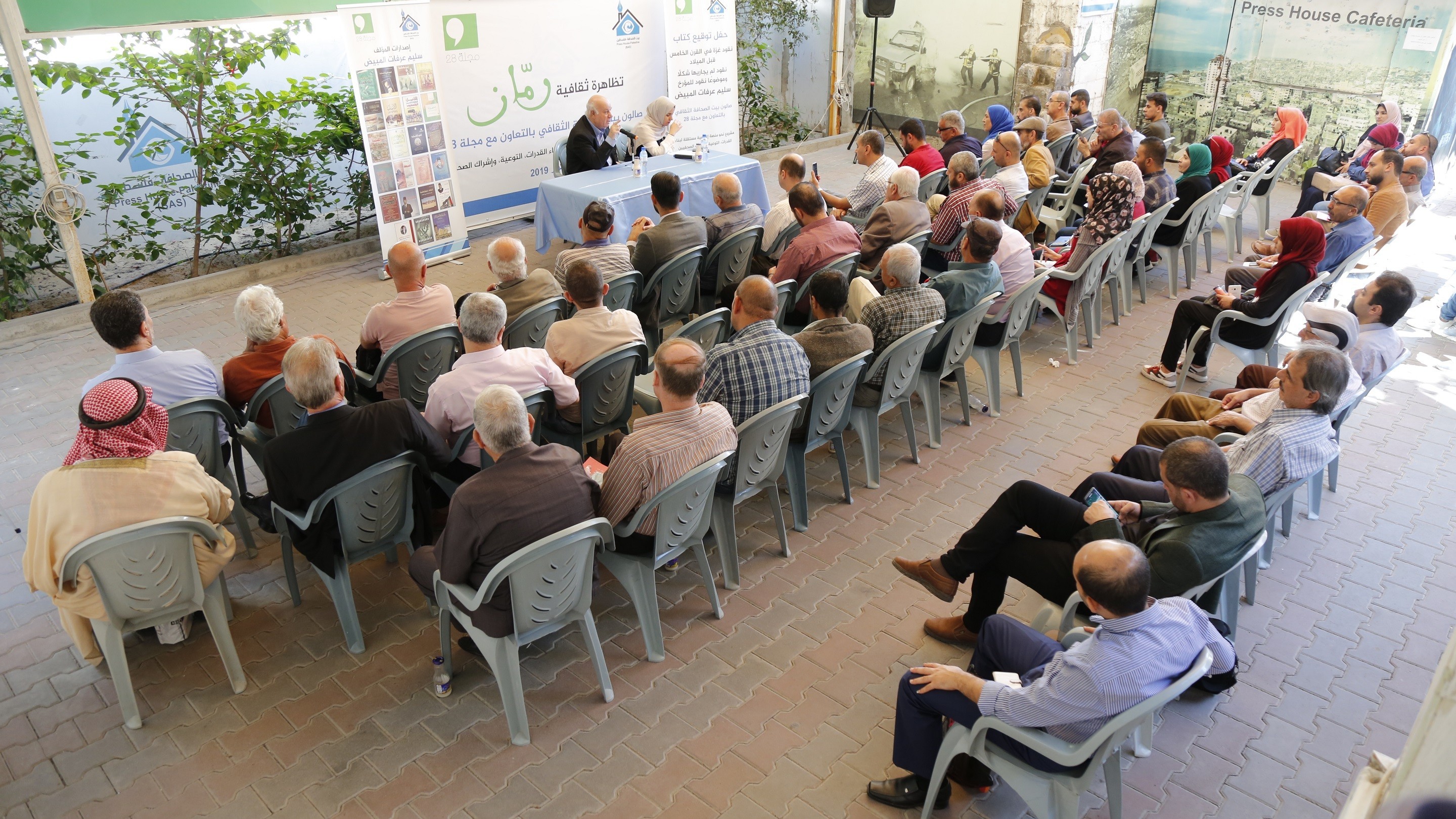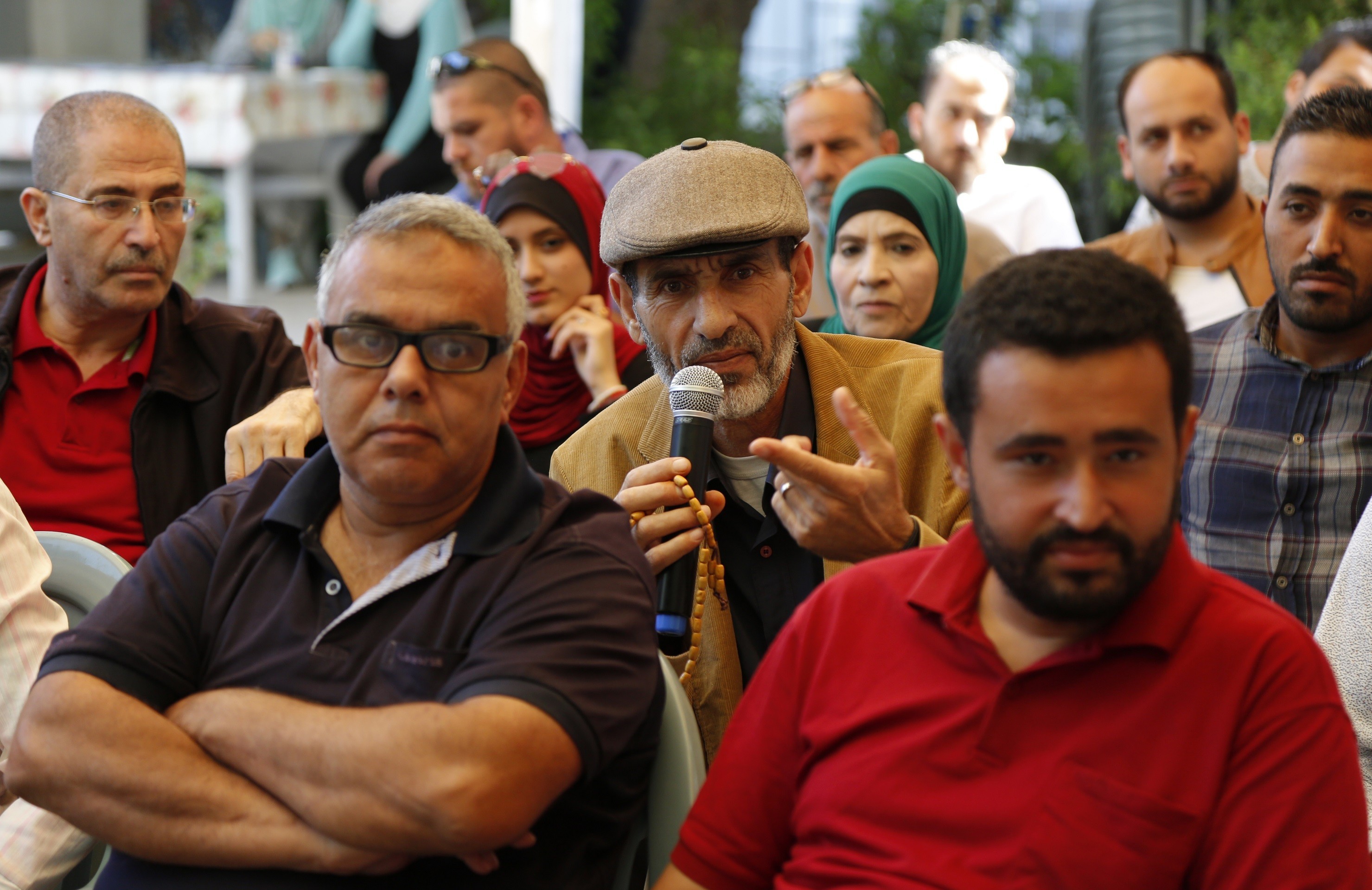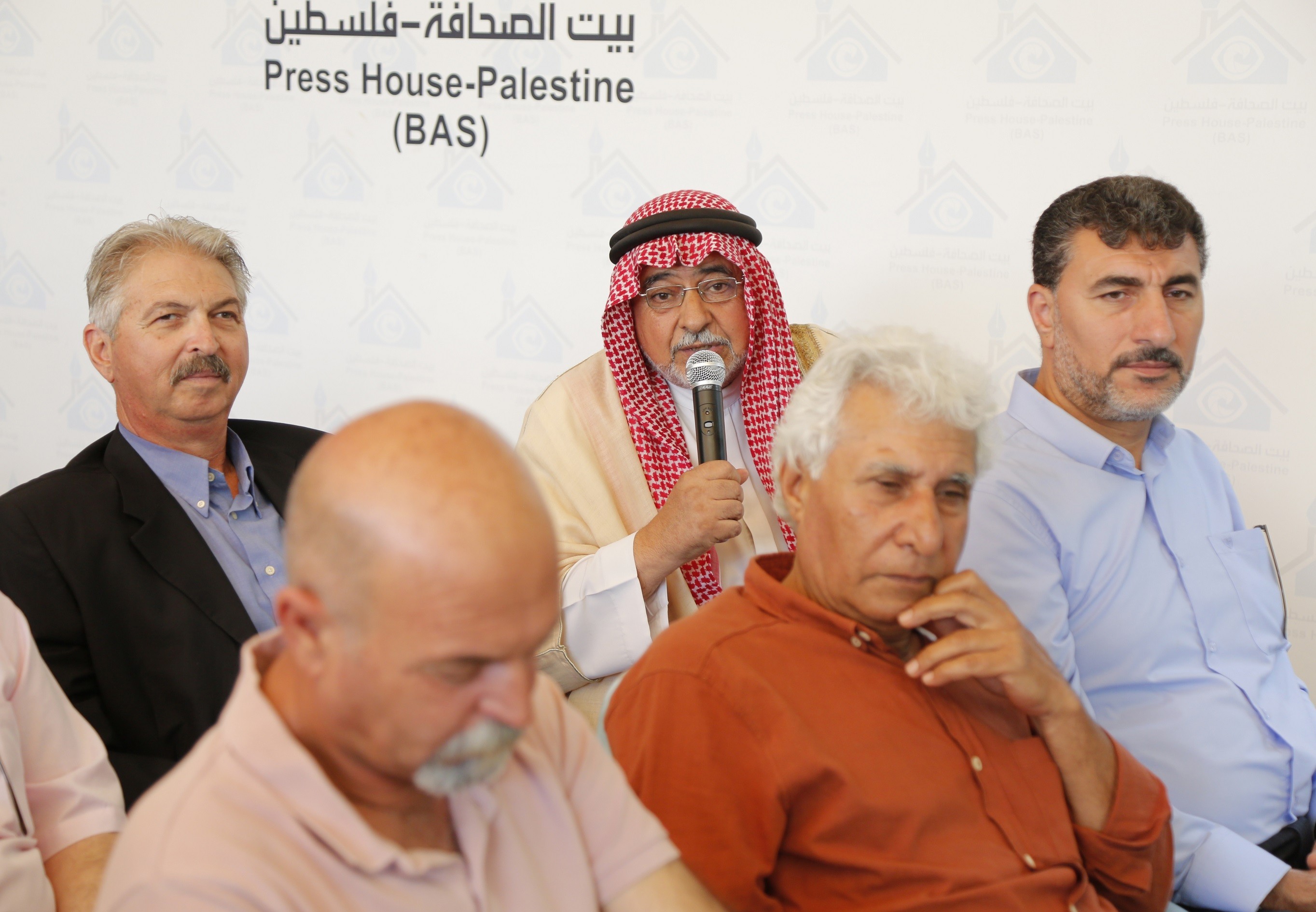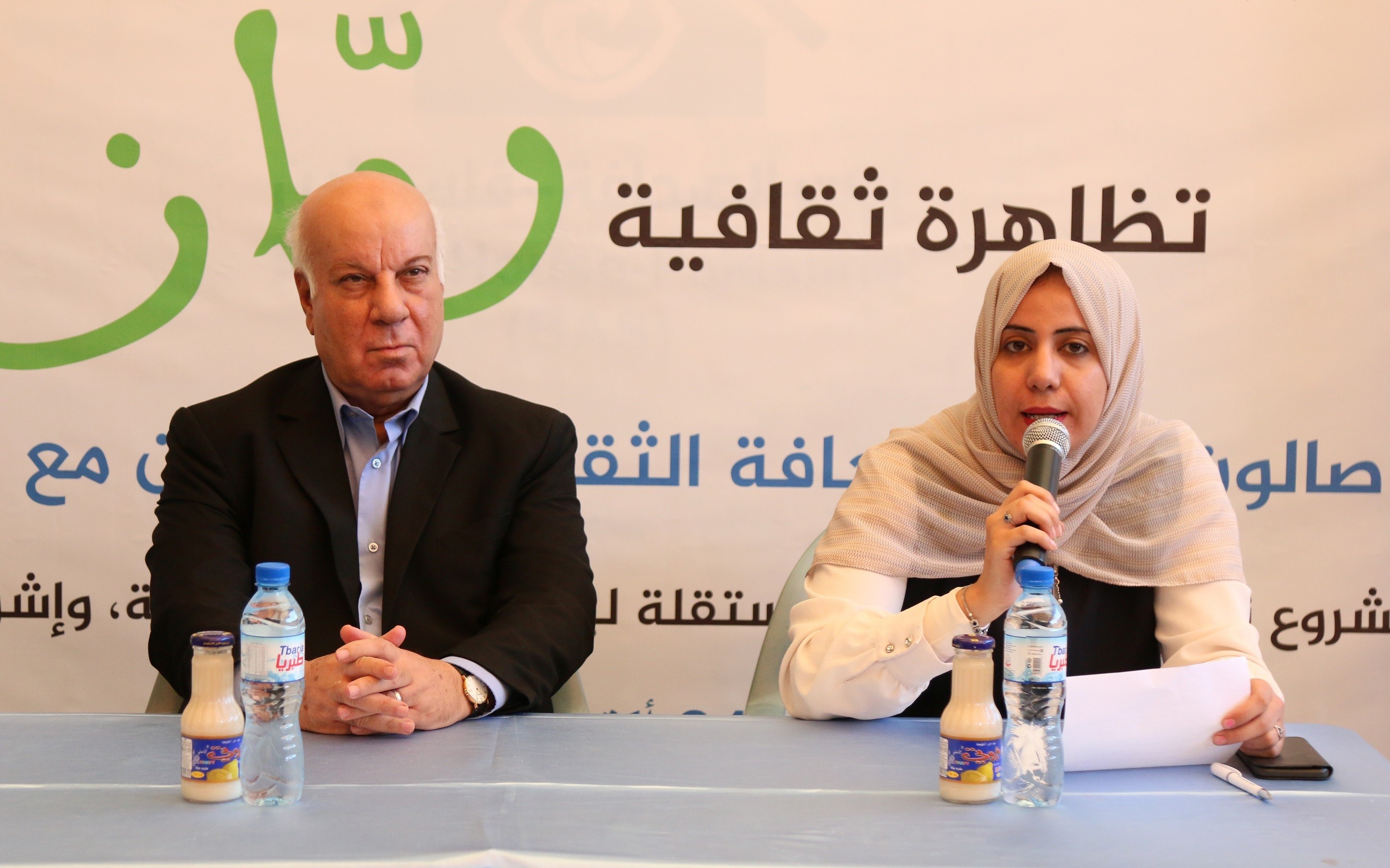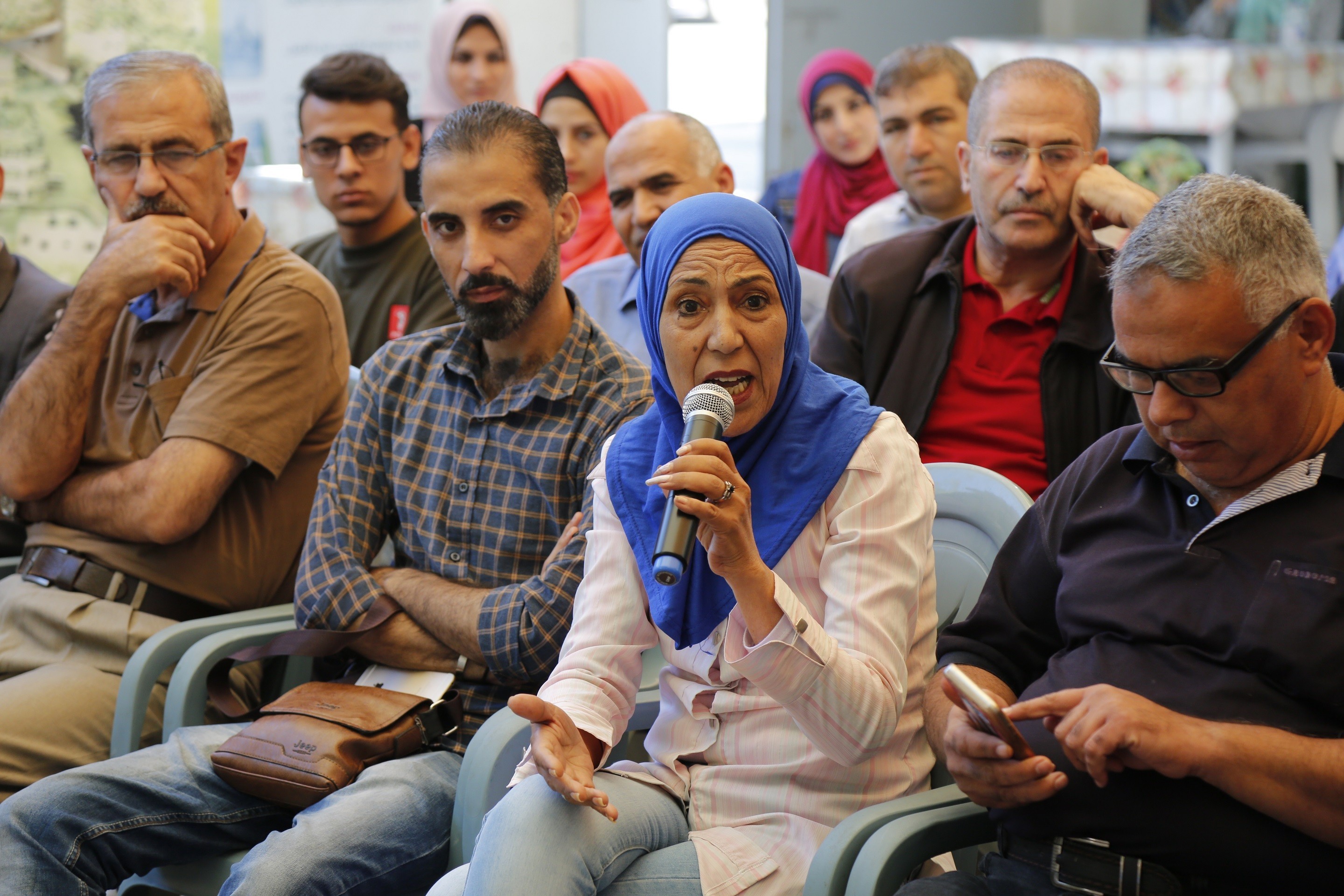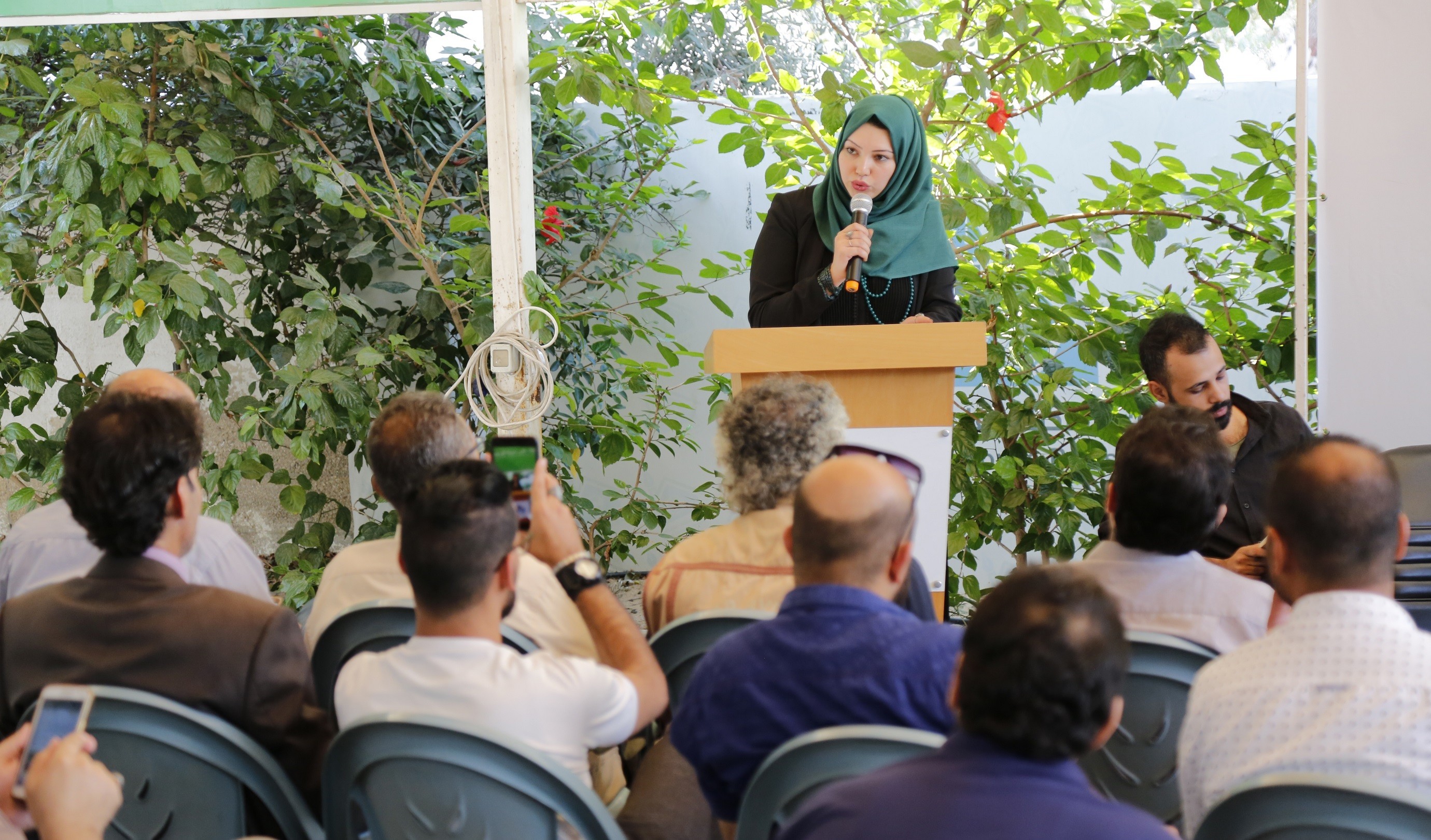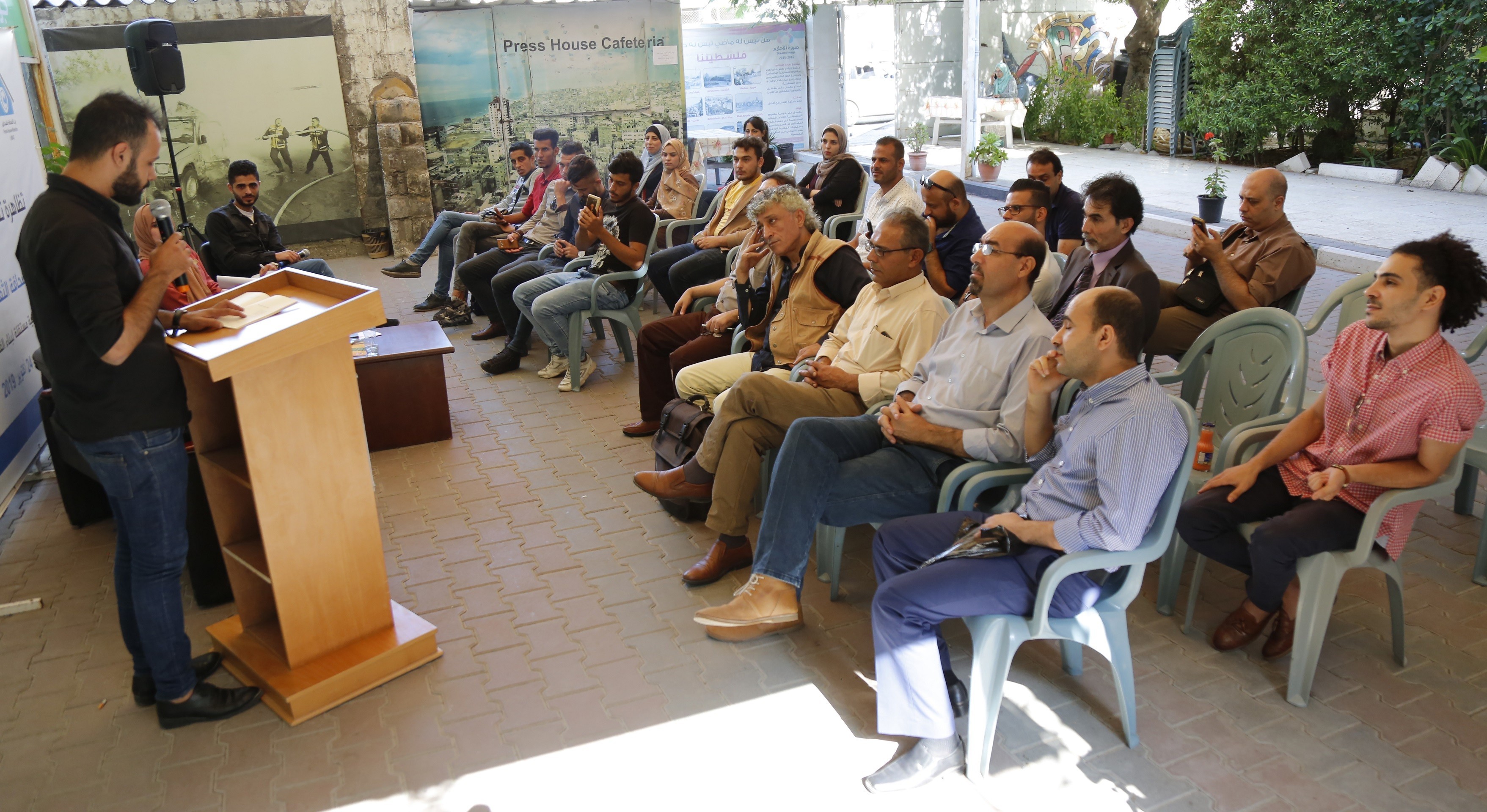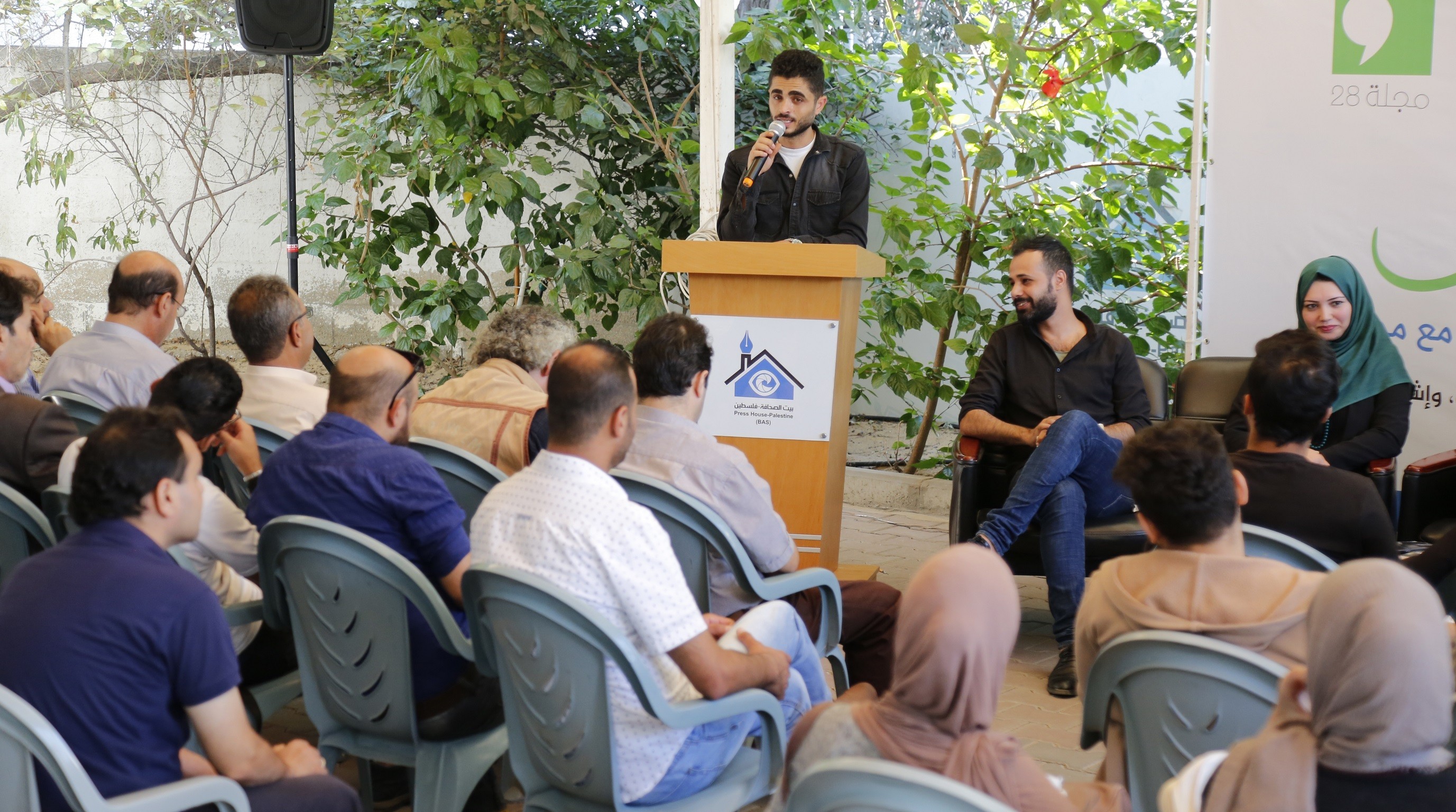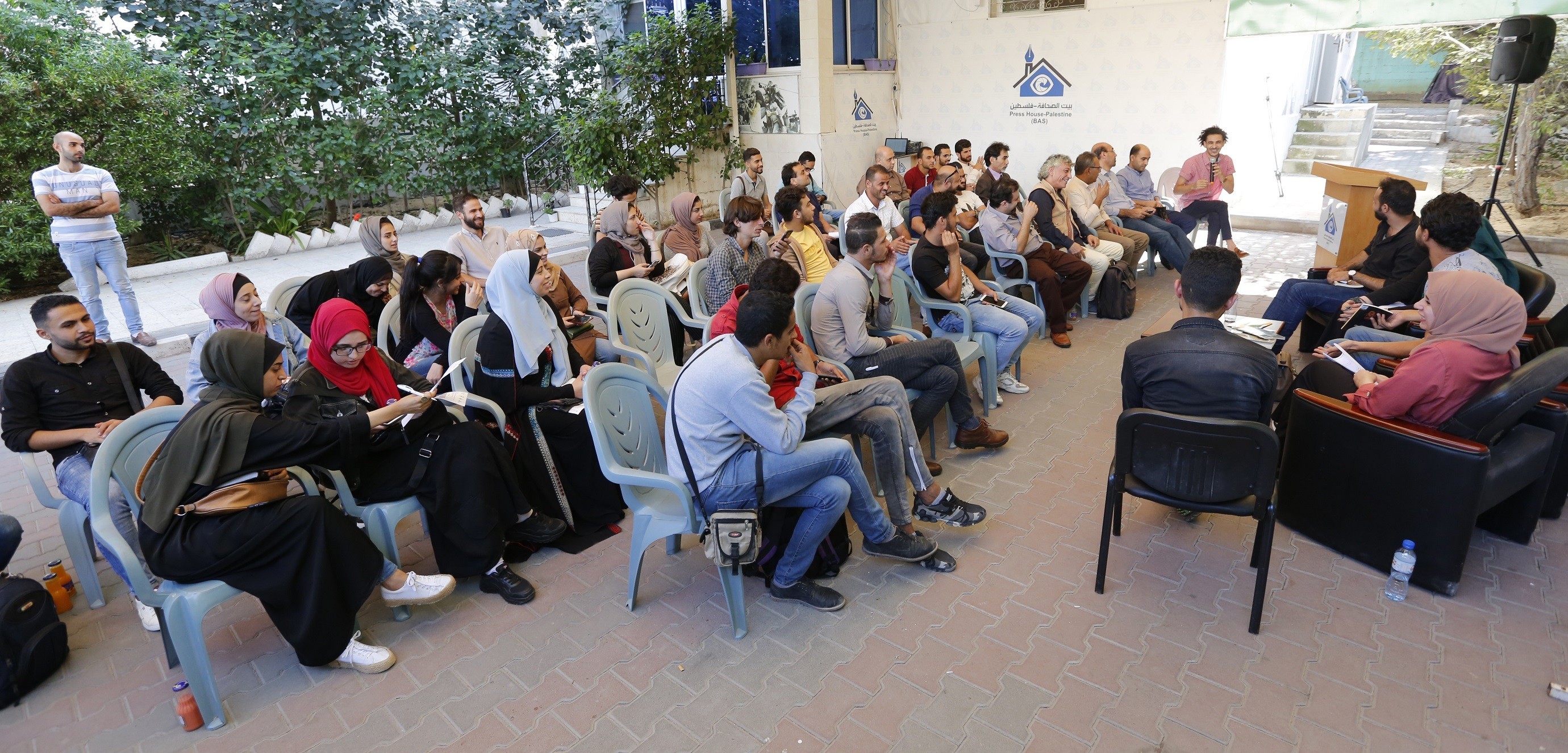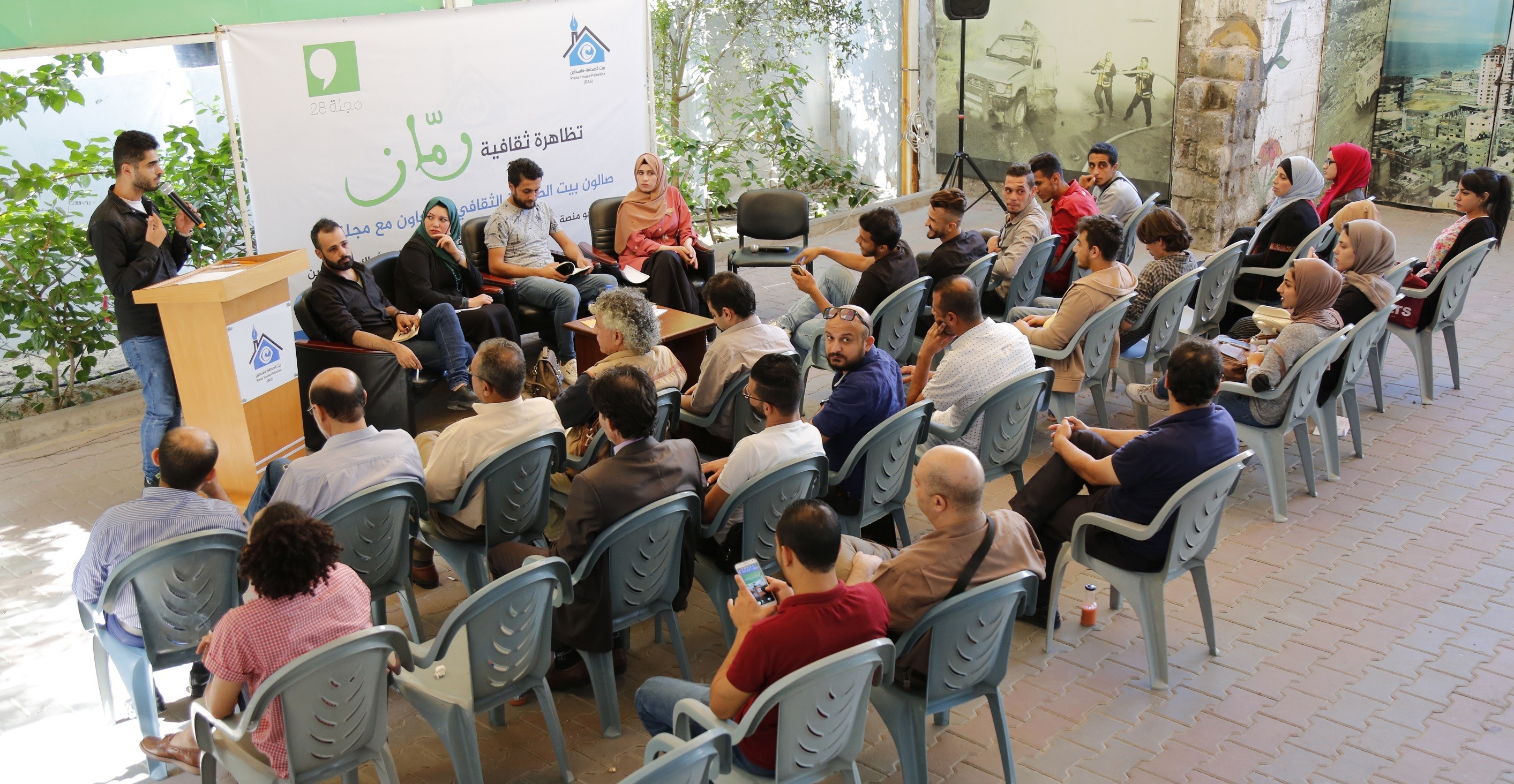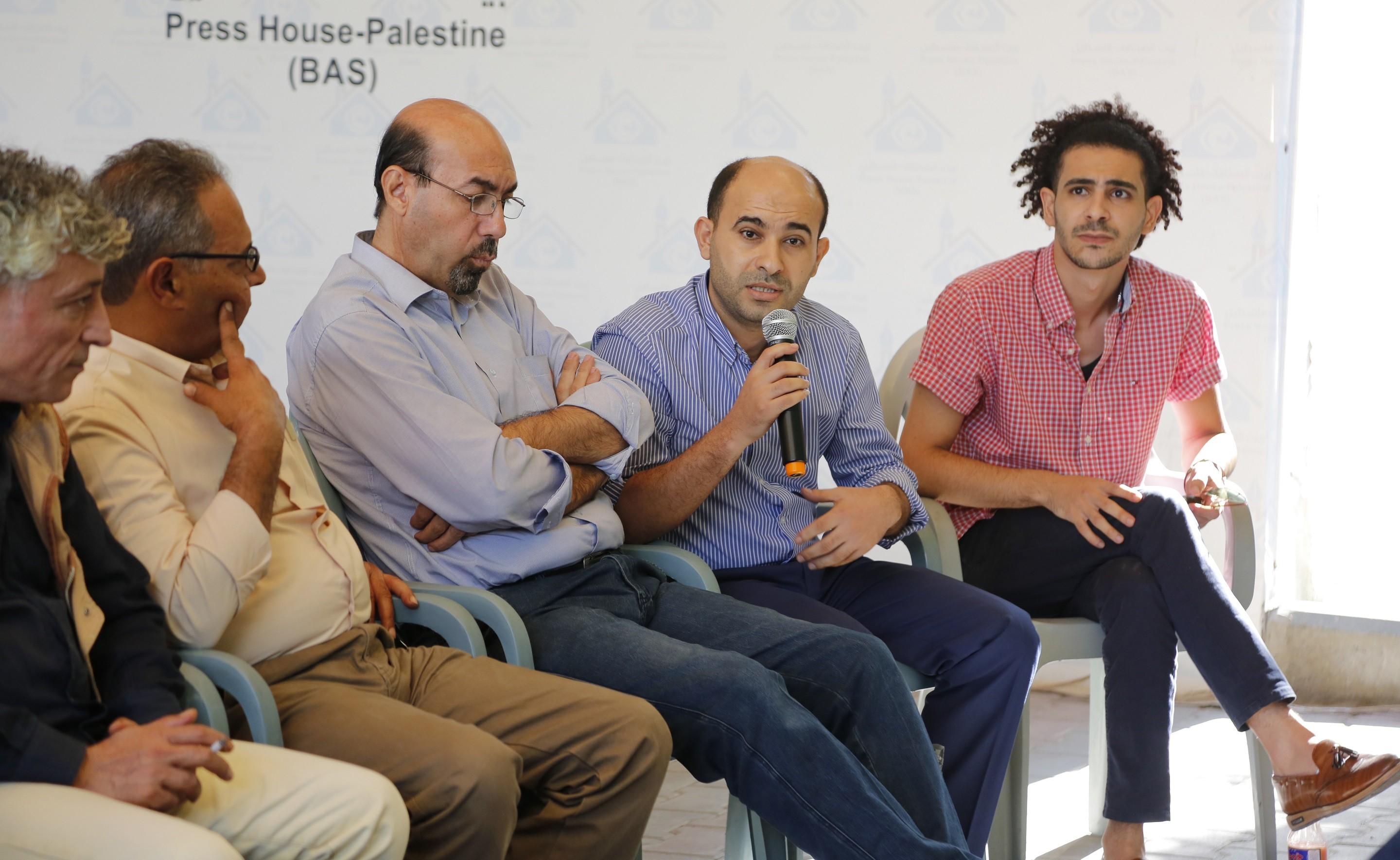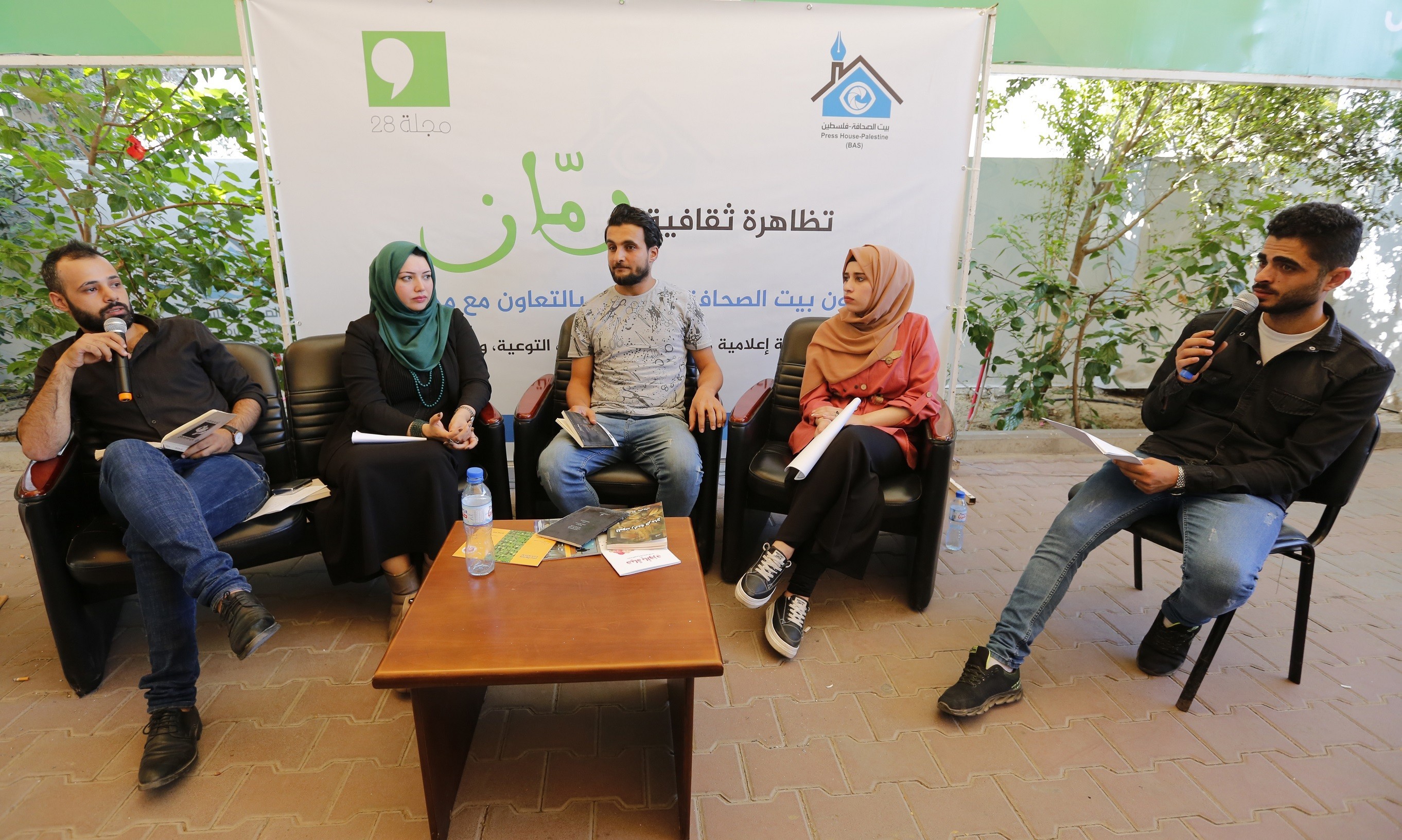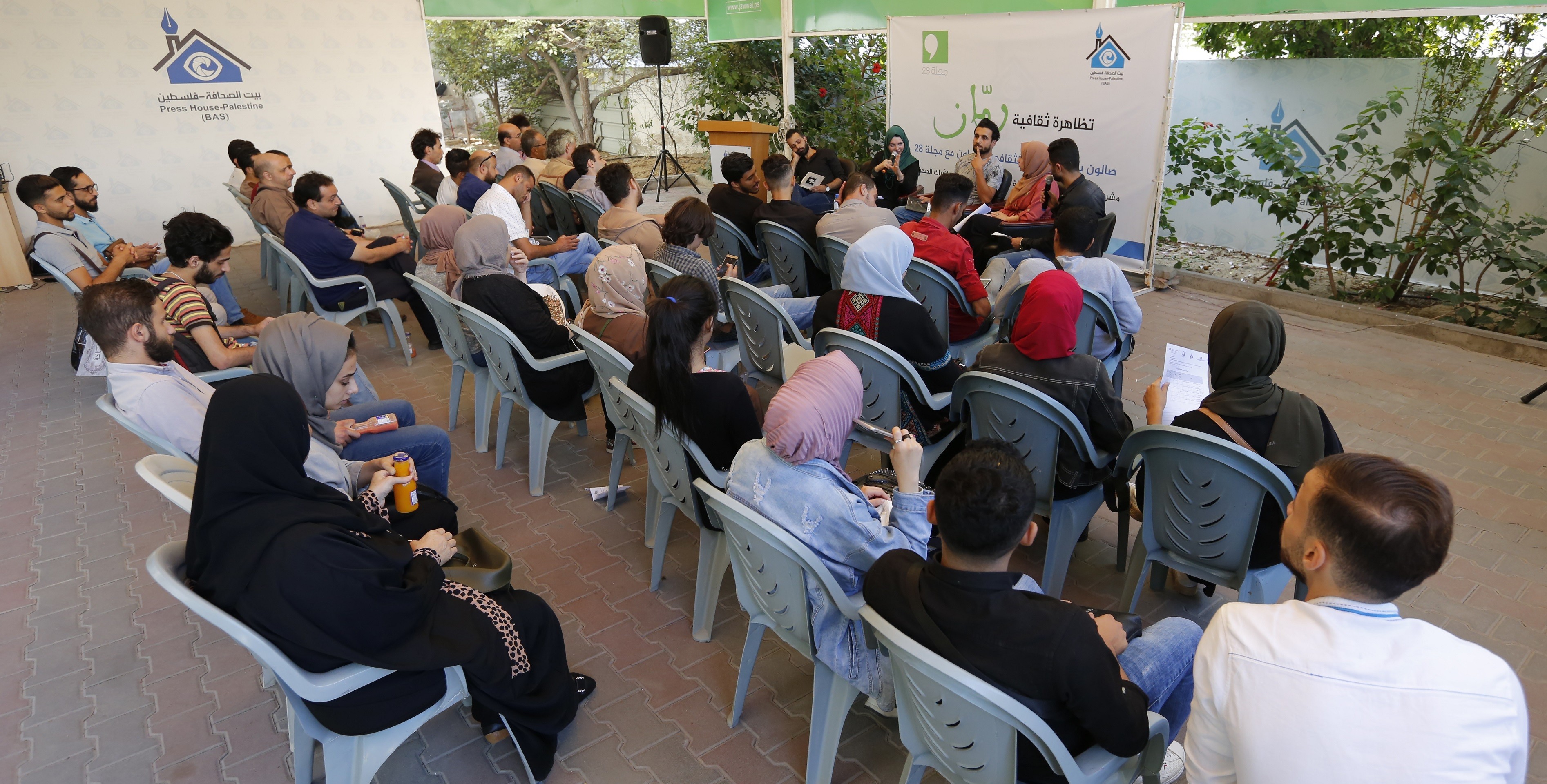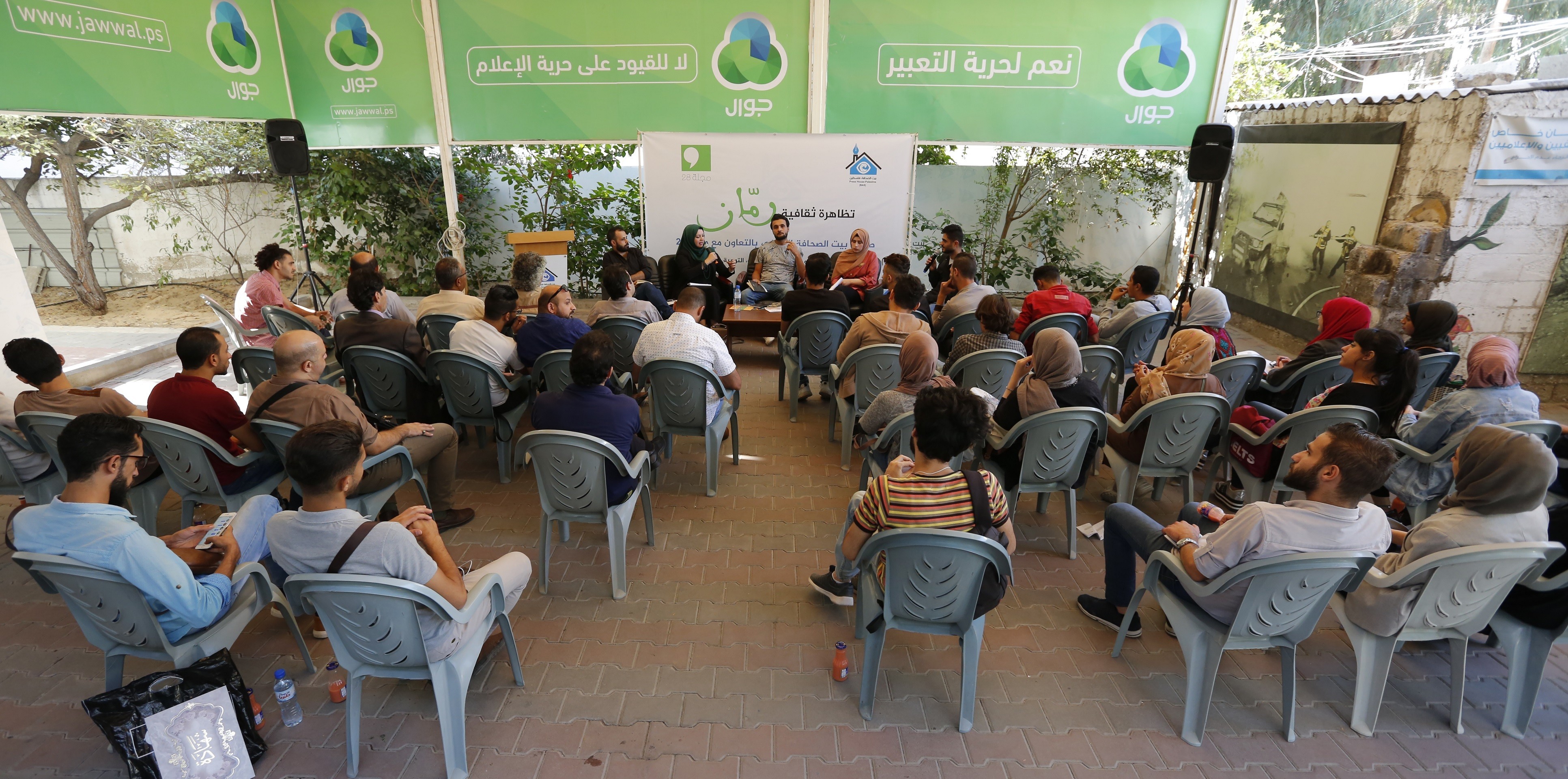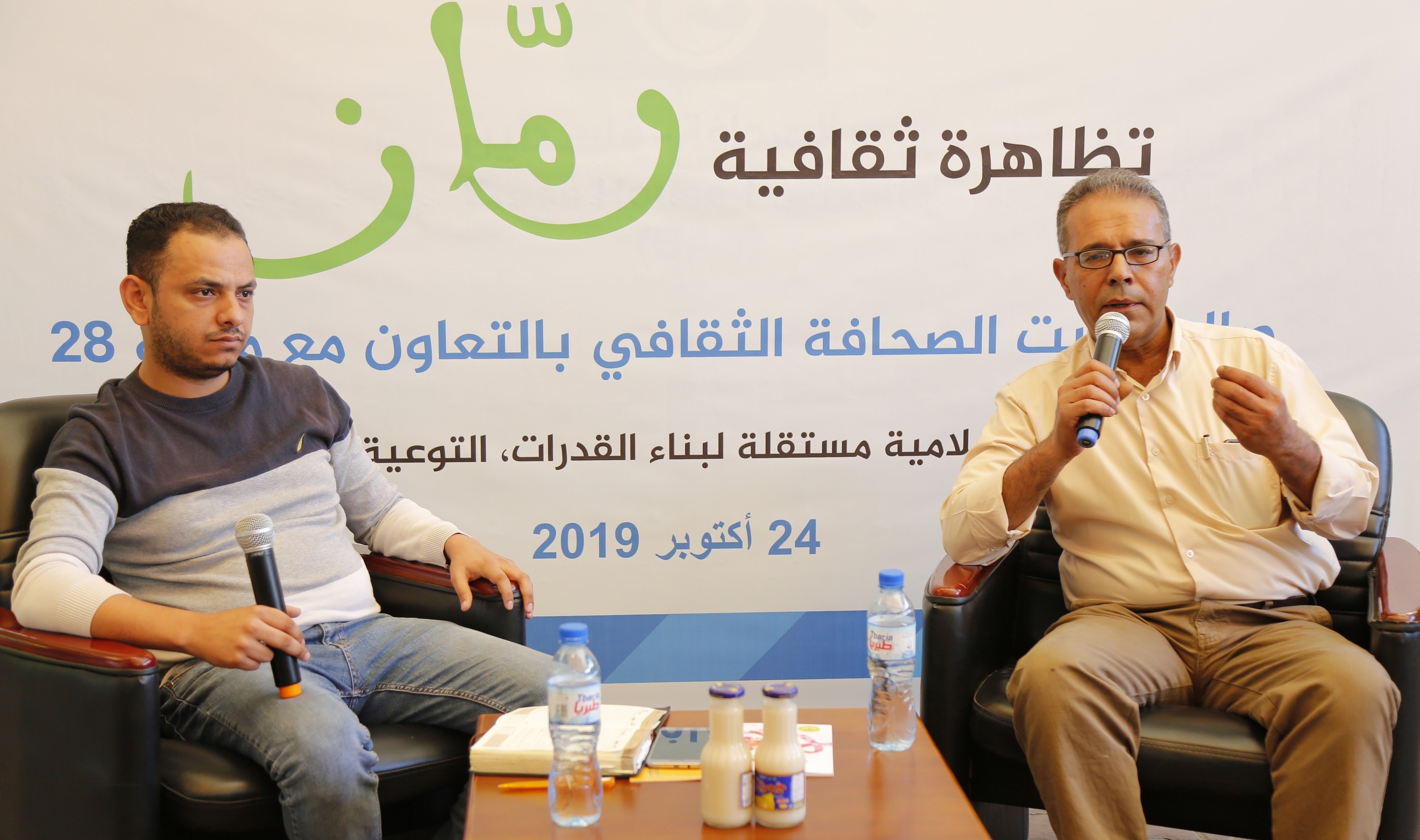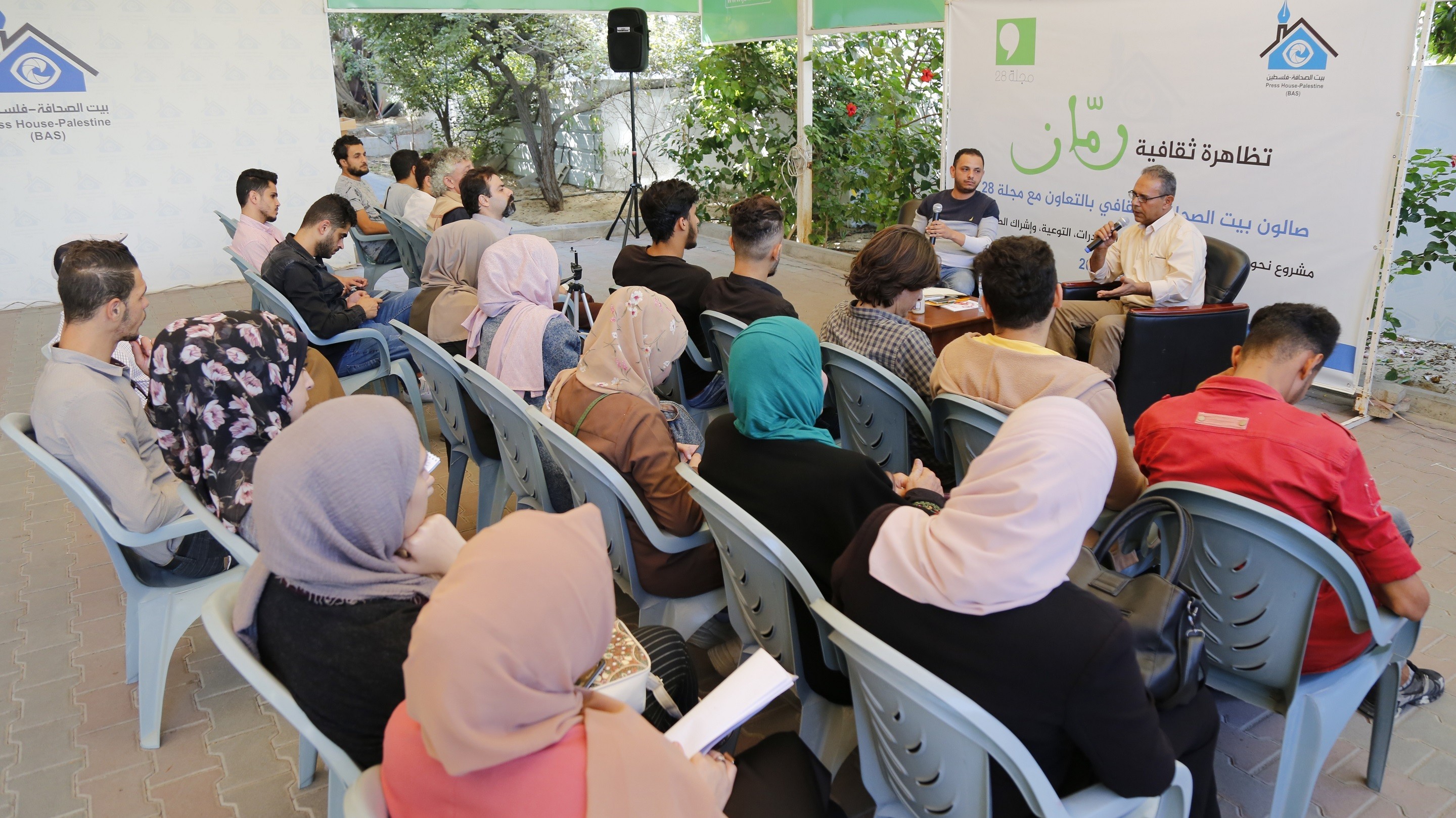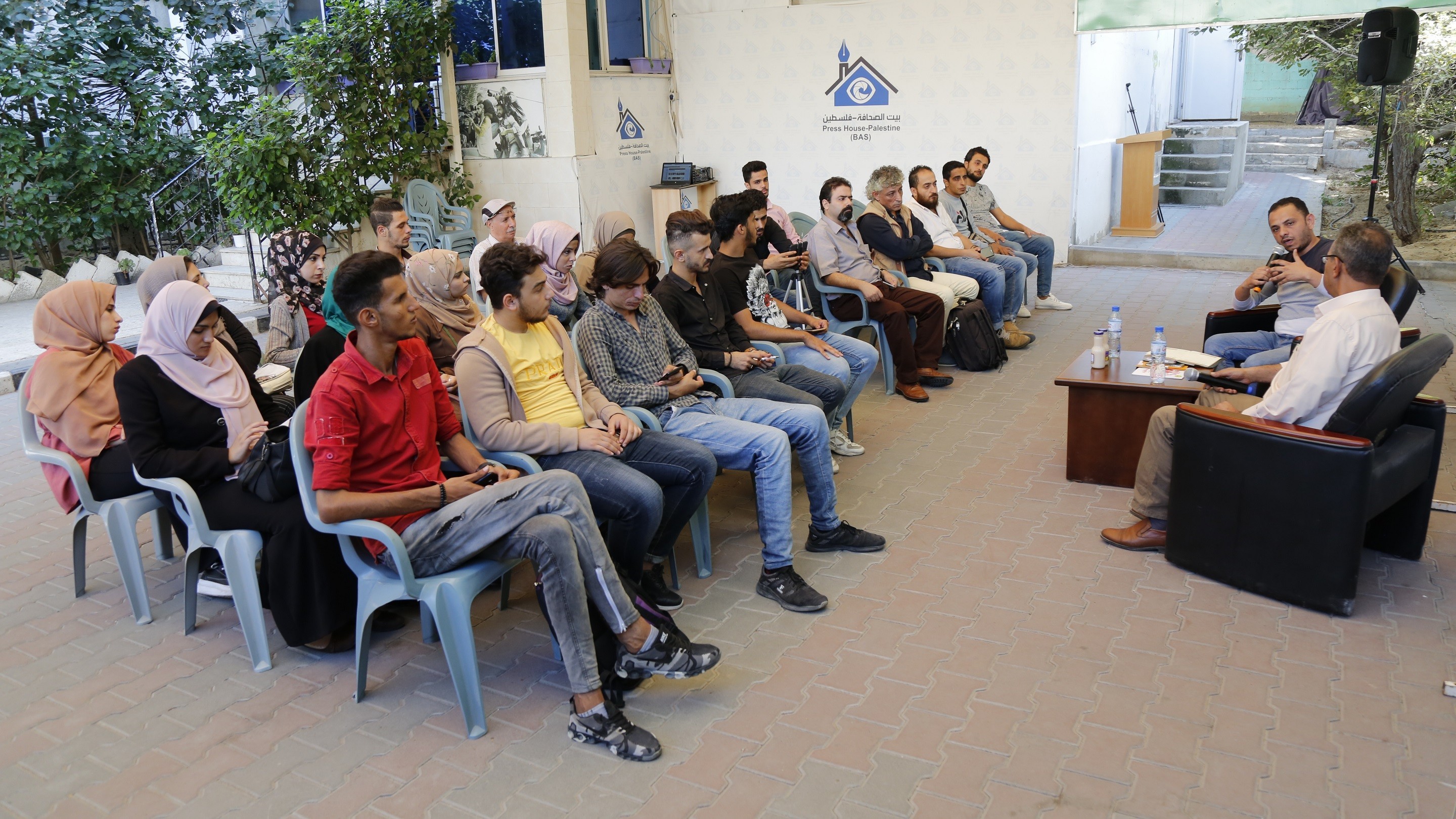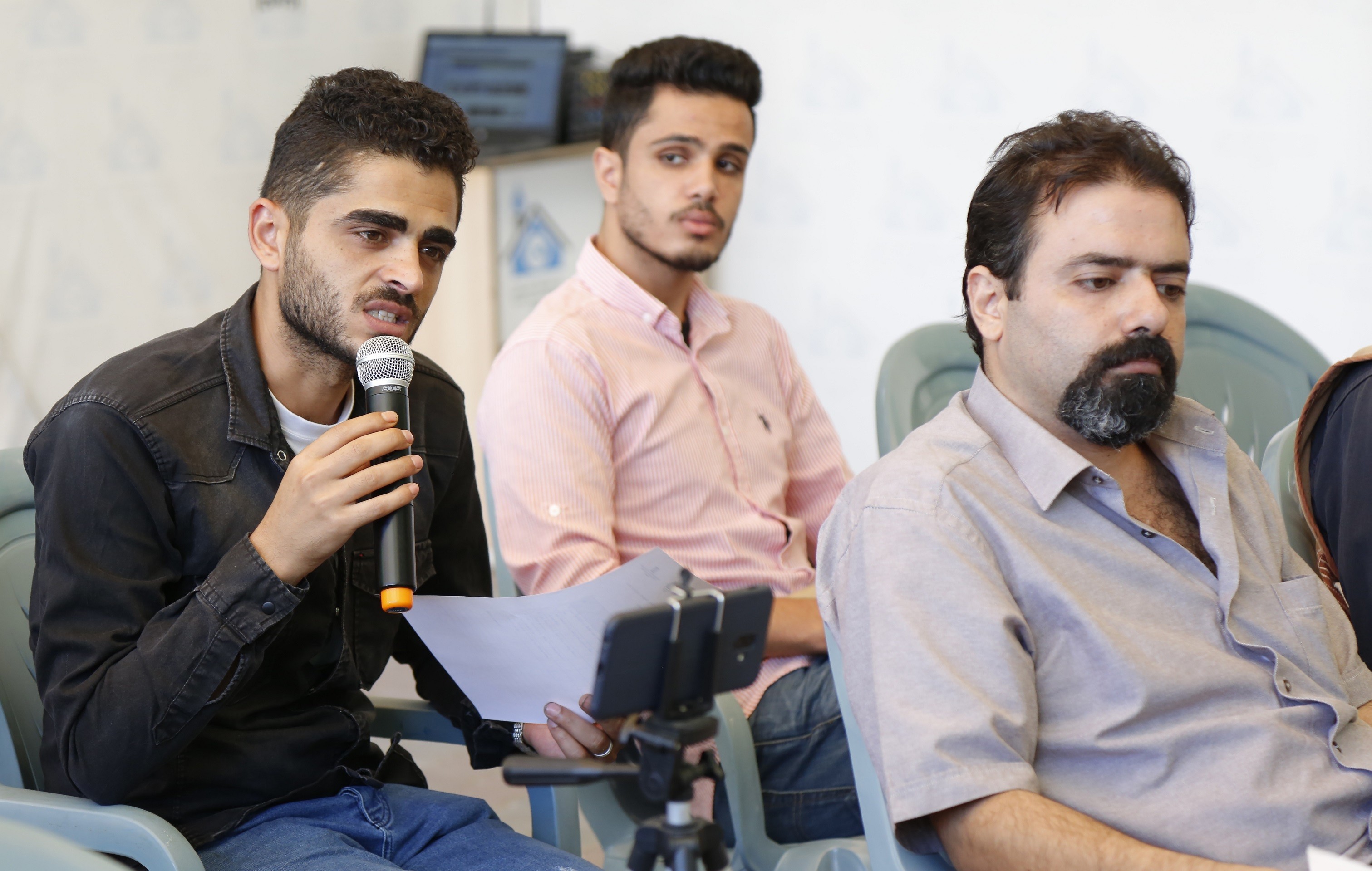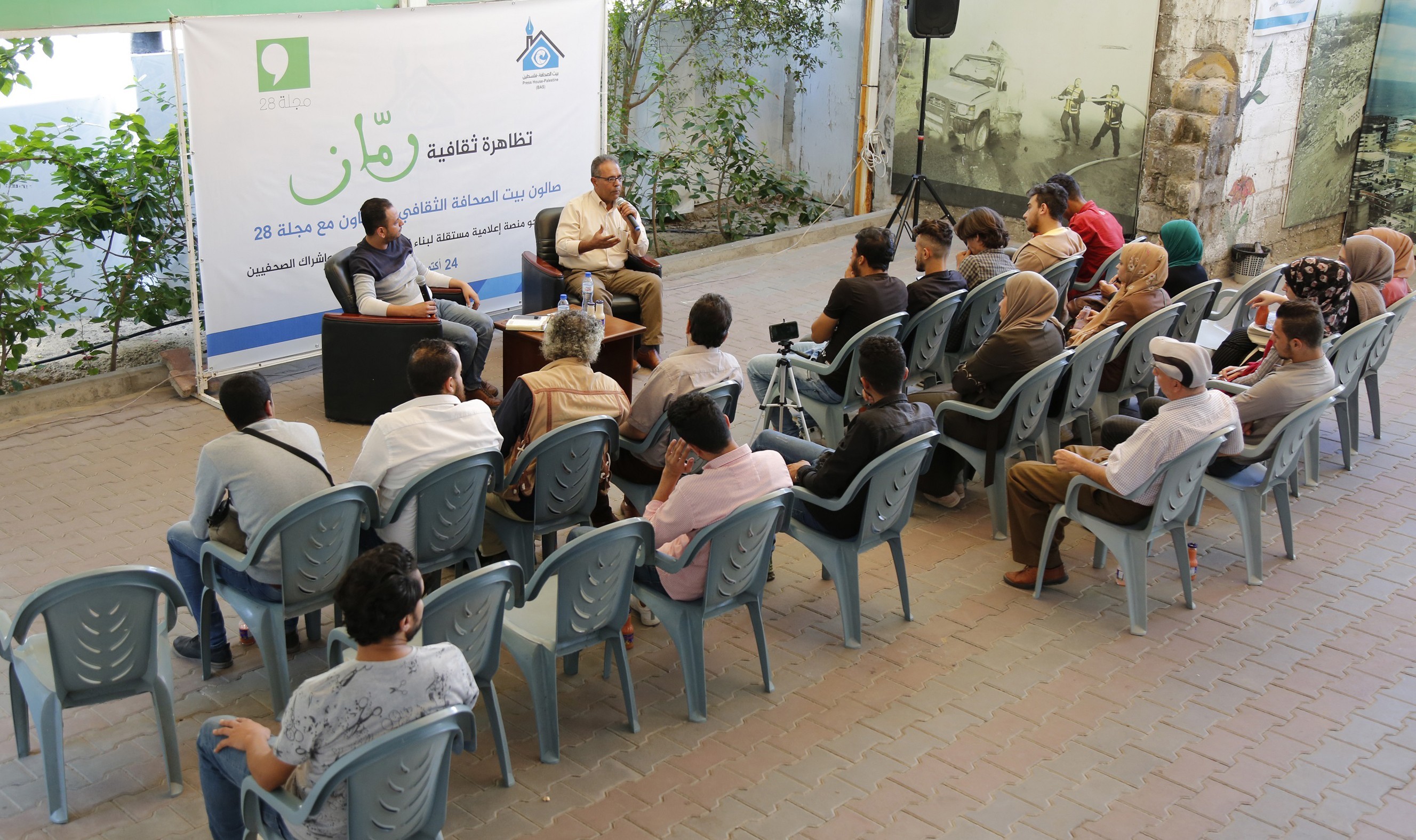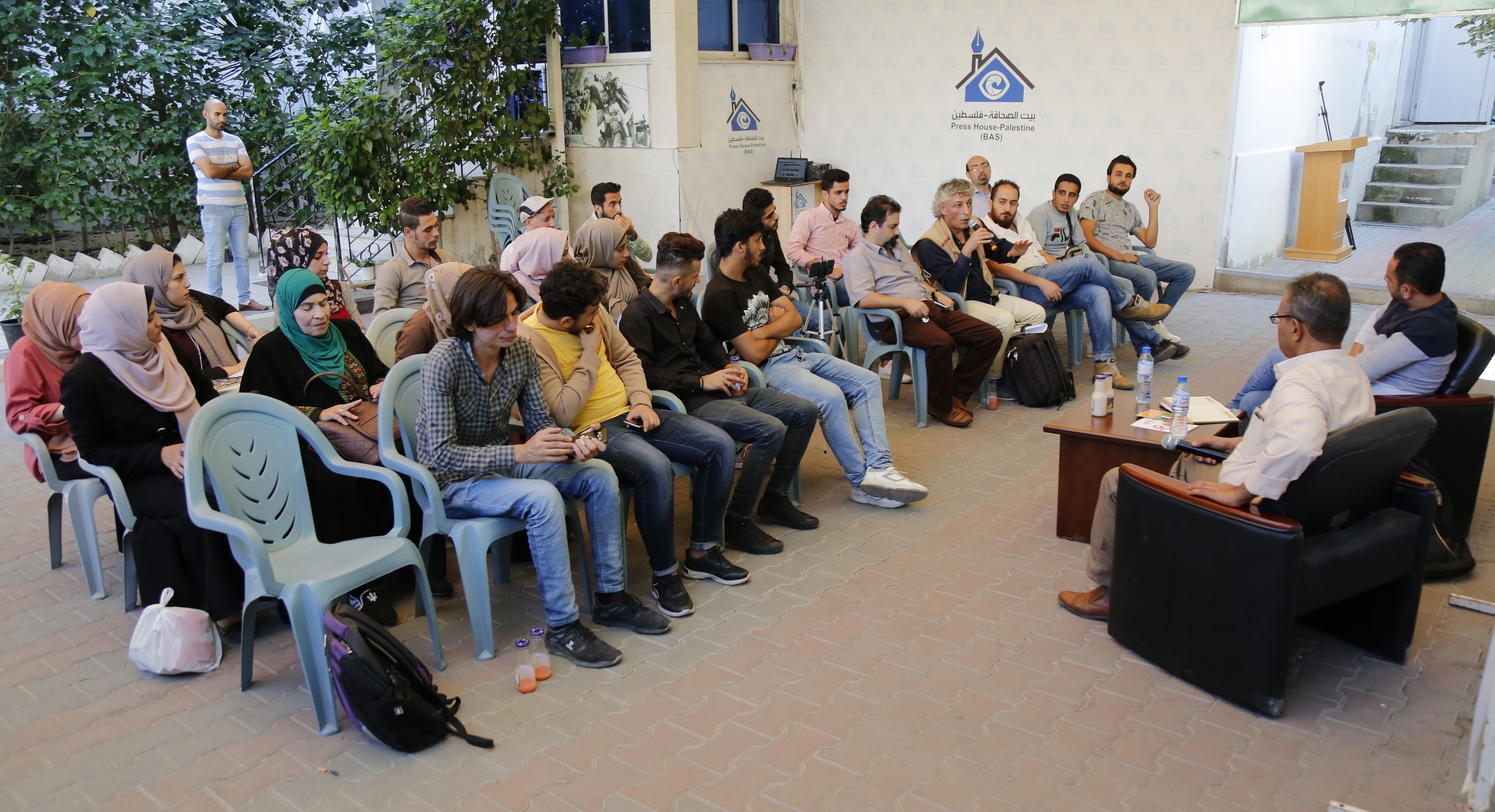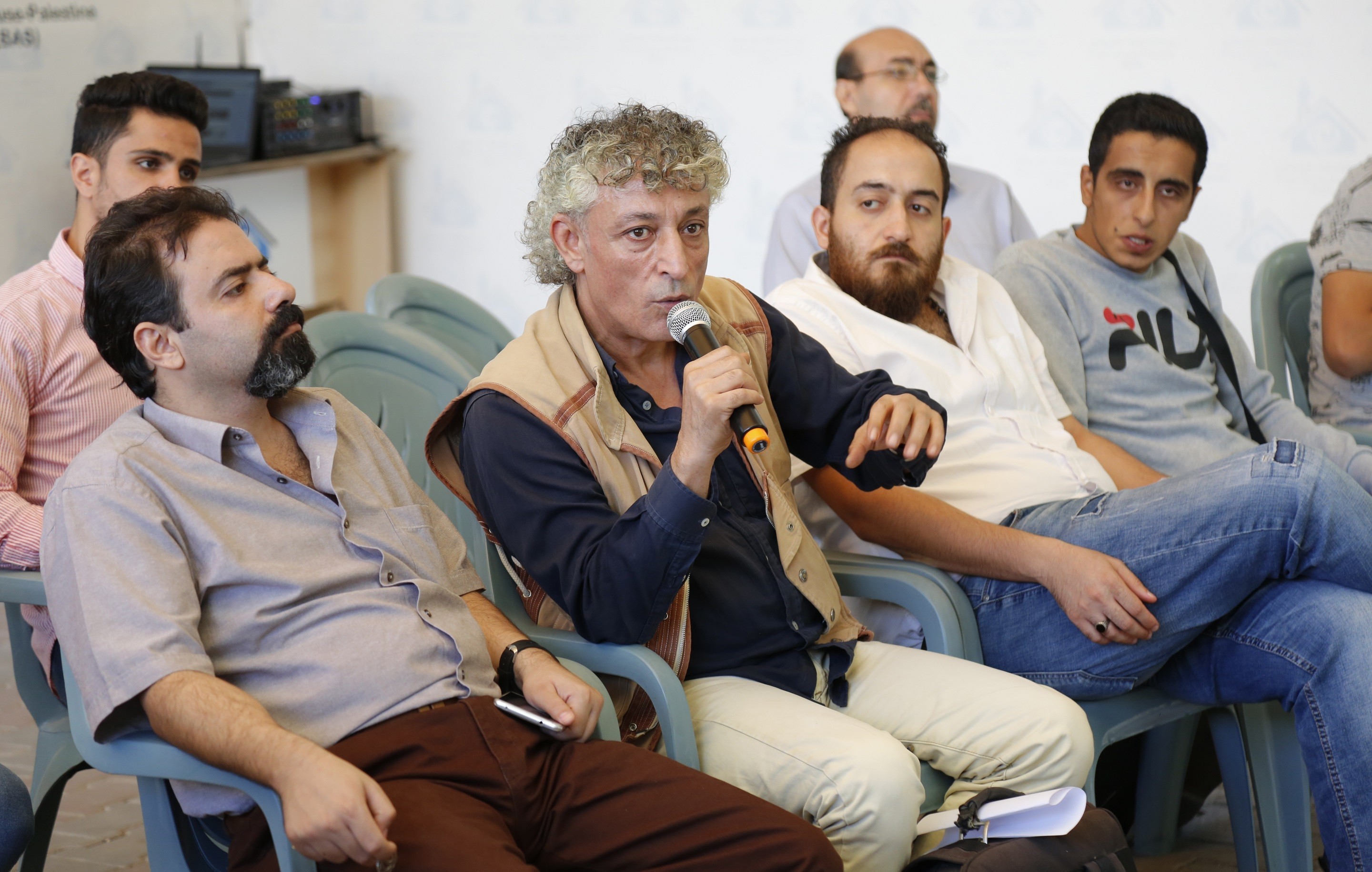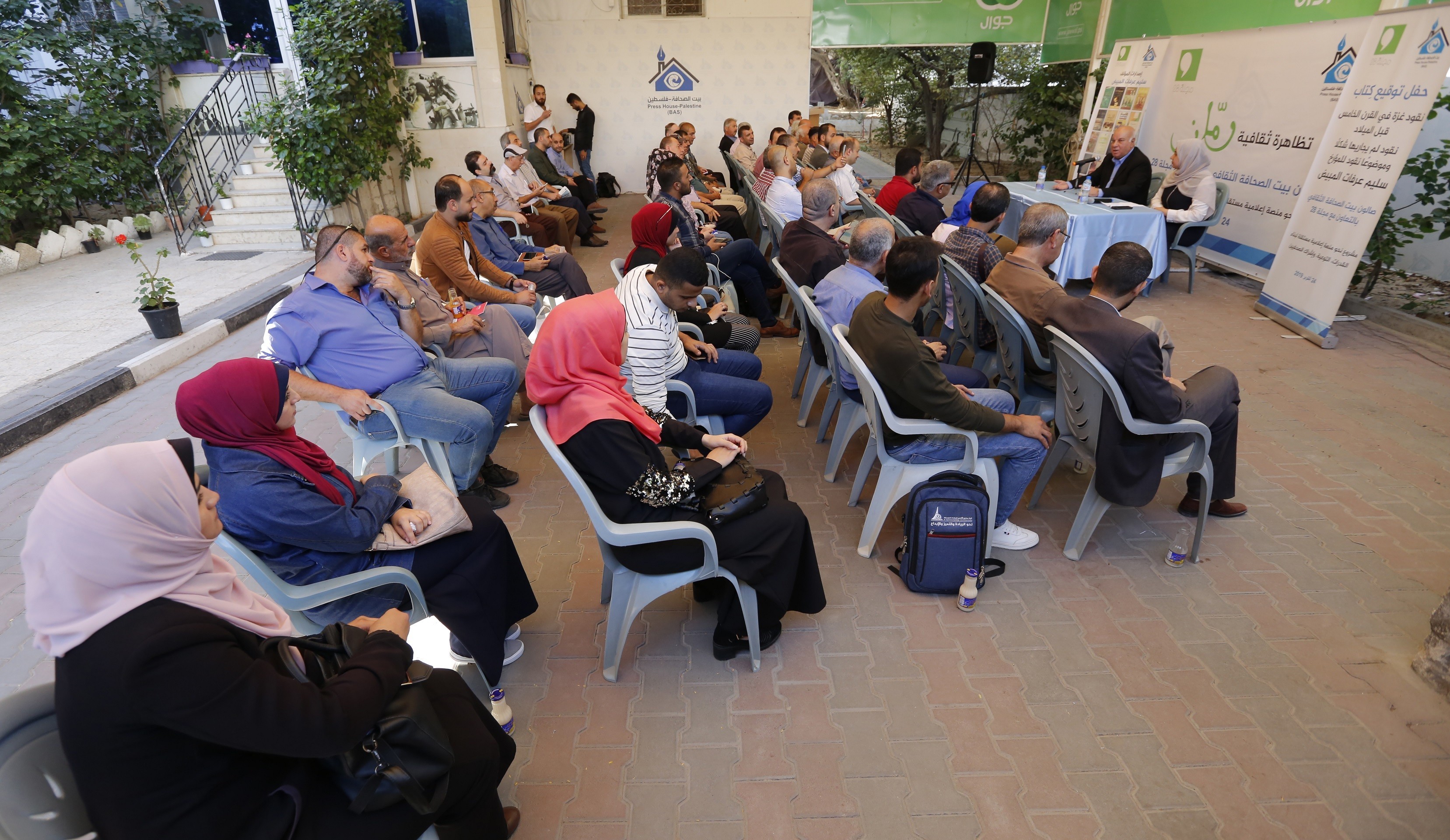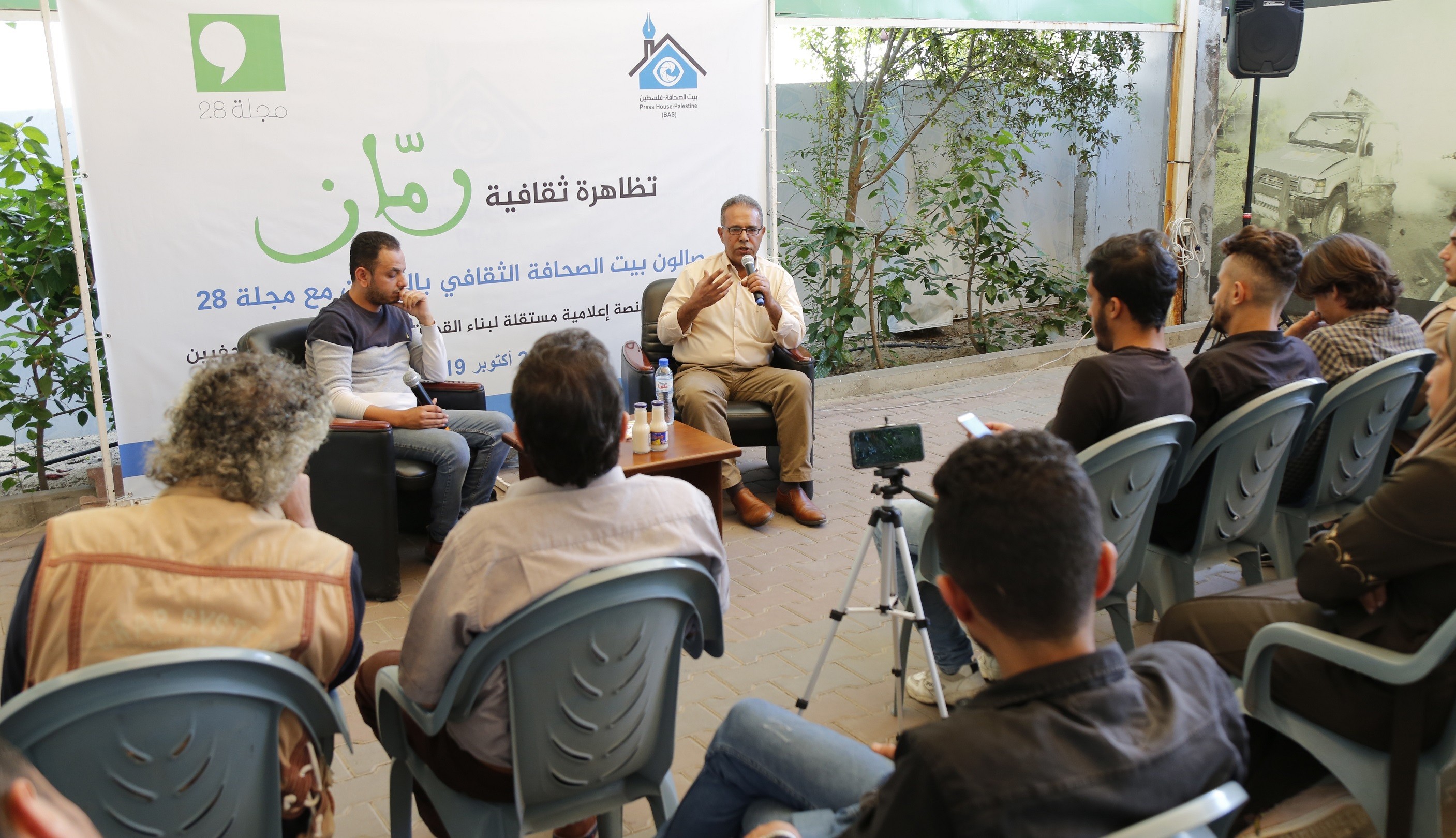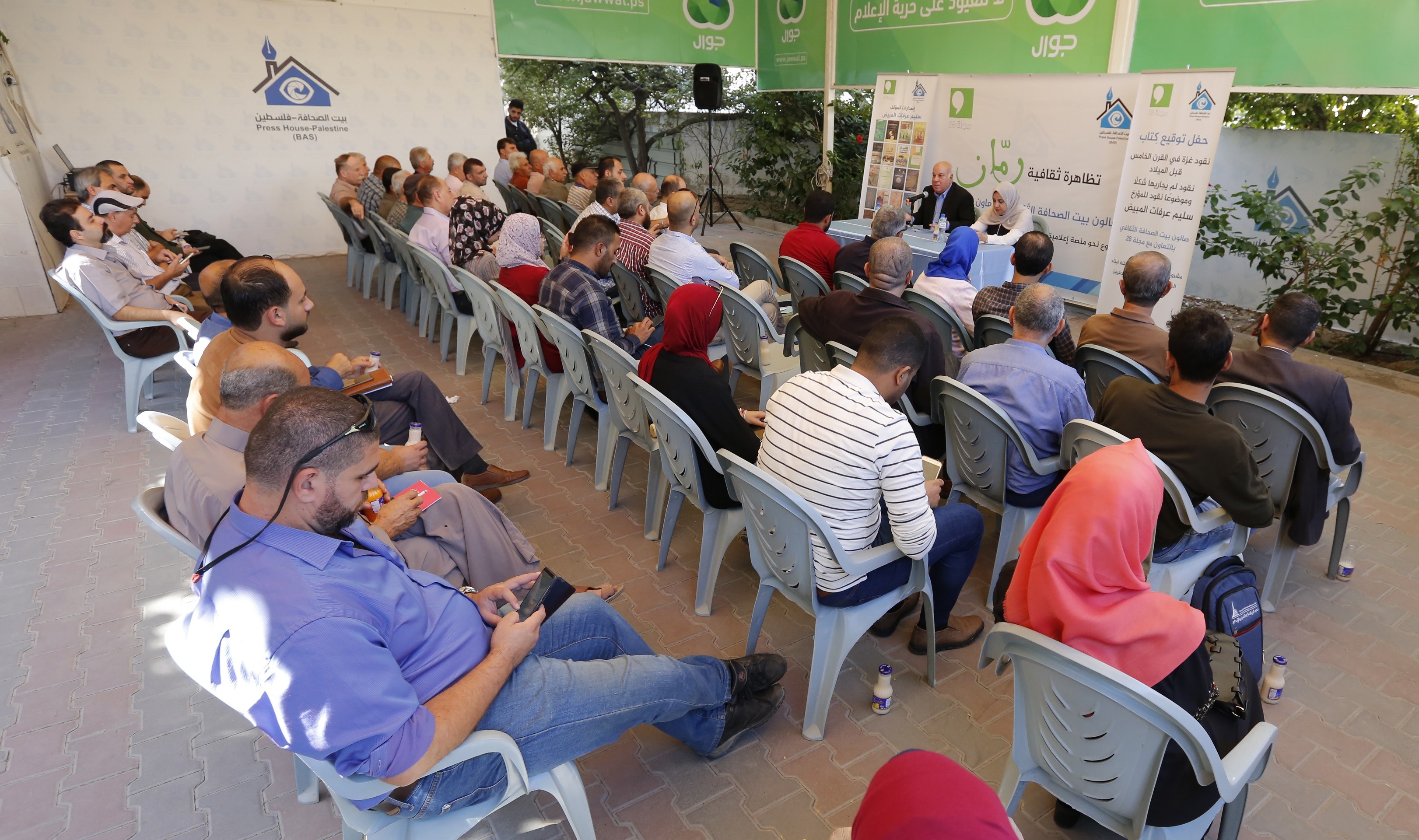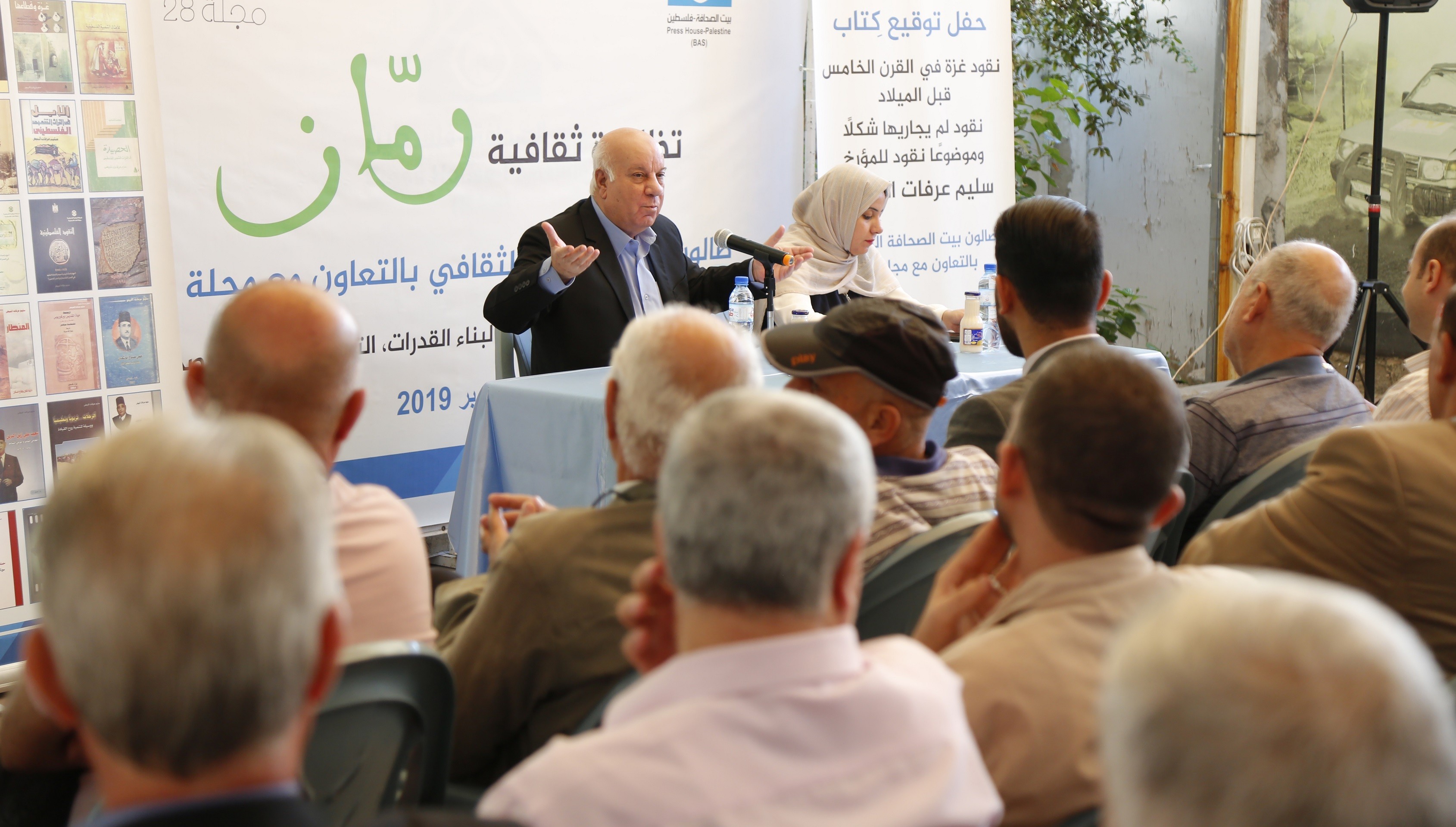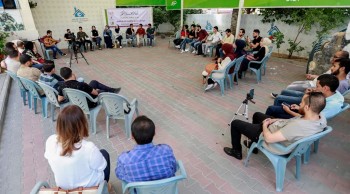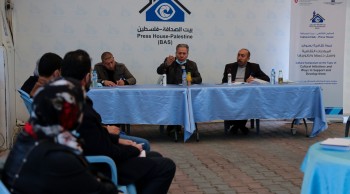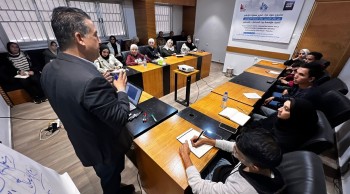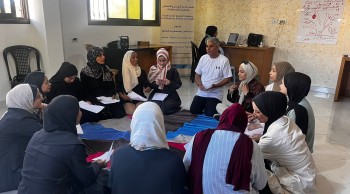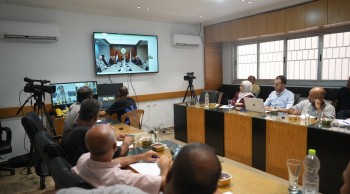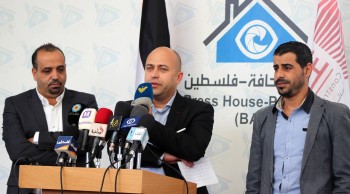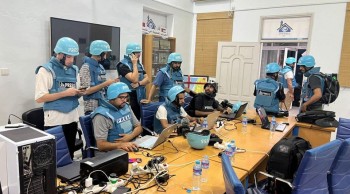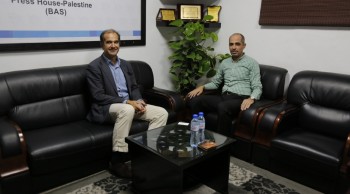On Thursday,24.Oct.2019,The Press-House Cultural Club in cooperation with the “28“ Magazine in the events of the Romman Cultural demonstration, organized the launching of the book "Gaza’s coins has not kept pace in the form and context with other coins in the world" by the writer and historian Salim Arafat Almobayid in the presence of a number of writers and dignitaries.
At the beginning of the ceremony, Samar Al-Malfouh, The Programs Manager at the Press House Foundation, welcomed the audience and the Writer Mr. Al Mobayid, who was born in Gaza City in 1943.He has several historical books, including: The geographic folklore of the Palestinian popular sayings, the book of the Palestinian Arab coins, the book of the harvest in the Palestinian folklore and the camels book in the Palestinian folklore.
Through this event, the writer launched his book "Gaza’s coins has not kept pace in the form and context with other coins in the world" after his journey of searching and collecting the Palestinian coins to talk about the oldest Palestinian currency and the types of exchange issued in Palestine, especially in the city of Gaza and its contemporary exchange document in the fifth century BC as the only port of ancient Palestine.
In the pages of his book, Al Mobayid shows pictures of the small coin that was stamped in Gaza in the fifth century BC, which does not exceed the size of 1 mm and was painted very accurately and saved under the tongues during travel and migration.
He called on all universities and institutions to intensify efforts and focus on the establishment of sections for coins science and encourage purposeful and scientific research and stimulate the rich to collect old coins and build a university for monetary heritage.
Then the Palestinian poet Othman Hussein gave a lecture on the discussion of the external influences on the development of poetic forms and the concept of poetic column.
Hussein spoke about the stages of the development of the poetic form and the line breaks of the poetic column during the previous years, where some writers deliberately went out of the traditional form of the vertical poem.
Hussein said that poets suffers from the absence of institutions as a body which unite the poets within a clearly defined poetic map.
Hussein explained that the similarity of the individual text of most young writers around the world is the result of similar living conditions and age groups, but creativity is considered a private matter.
The Romman demonstration also included a poetic evening titled "Lamps for Absence", in which a group of poetic texts were presented to young poets from the Gaza Strip.
The executive director of the “28” magazine Mahmoud Al-Shaer that the poetic evening aims to revive the cultural center in Gaza and create channels of communication between young writers and the surrounding community.
Poets began the evening by reciting their poems, most notably: Mahmoud Al Shaer, Hussam Marouf, Hind Jouda, Doha Al Kahlout and Anis Ghanima.
A number of texts were read during the evening by young poets from Gaza who chose to emigrate due to the poor living conditions, including Khaled Juma’a, Sahar Moussa, Majd Abu Amer, Hamza Hasan, Hasan Ayoub and Nasser Jamil Shaath.
